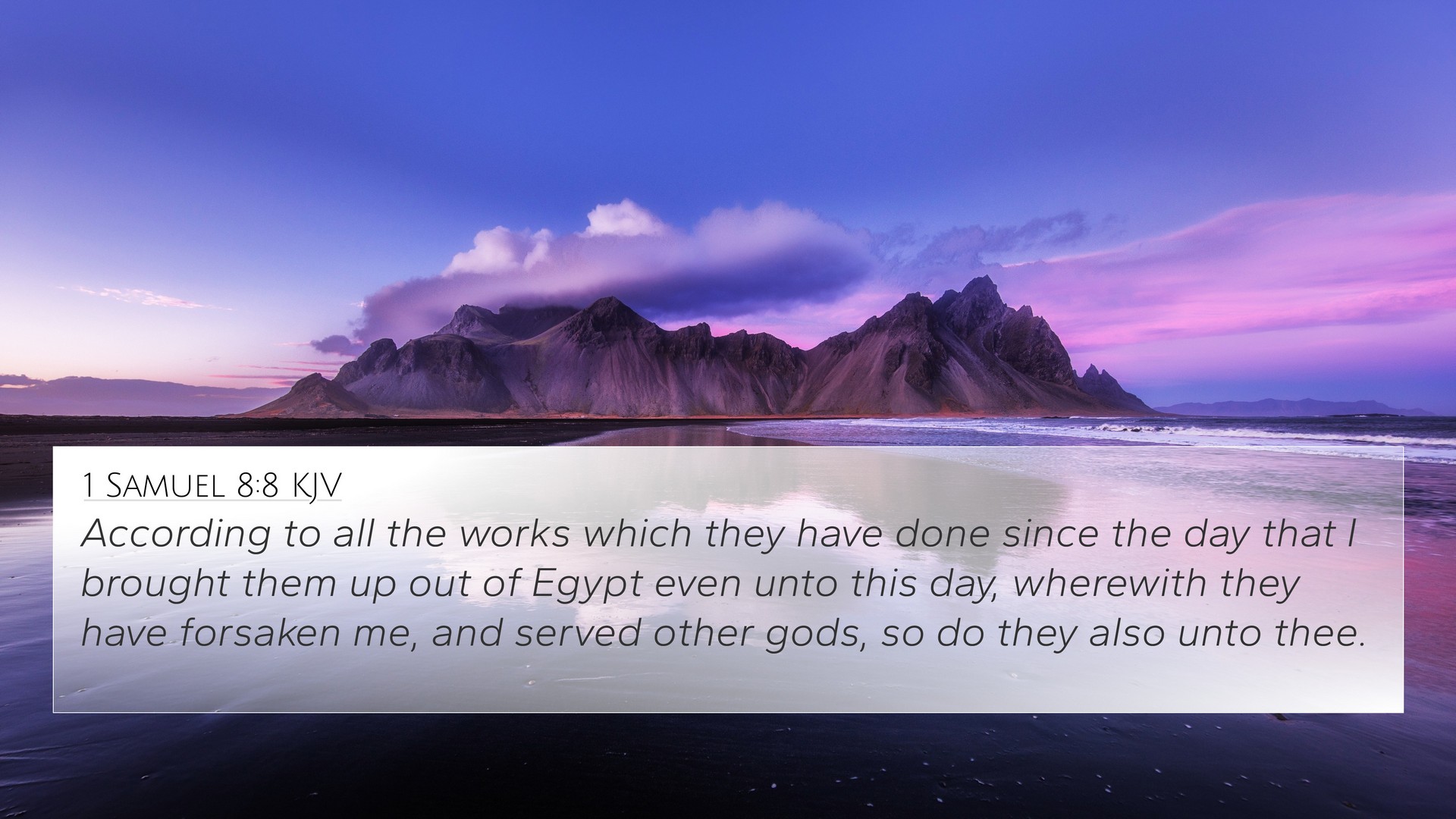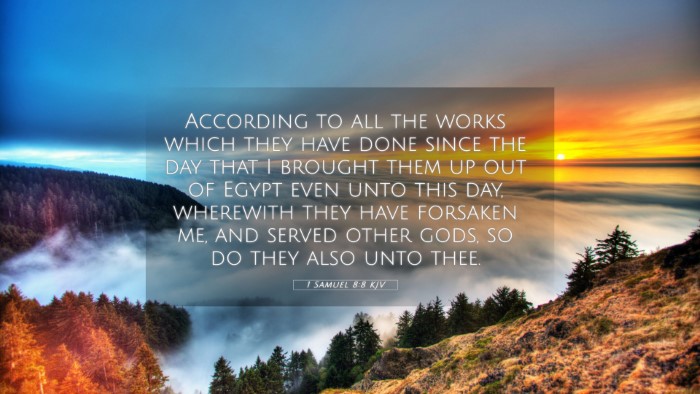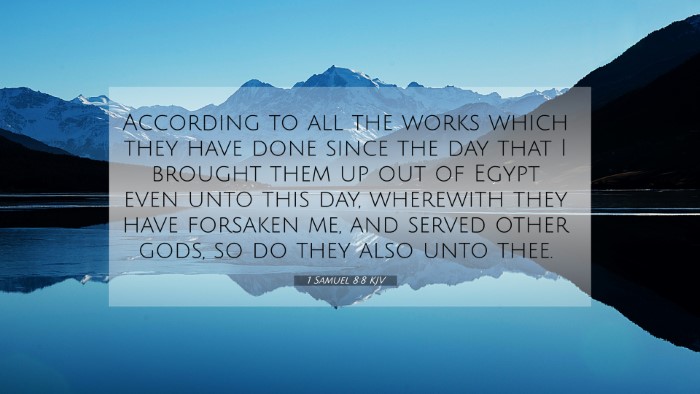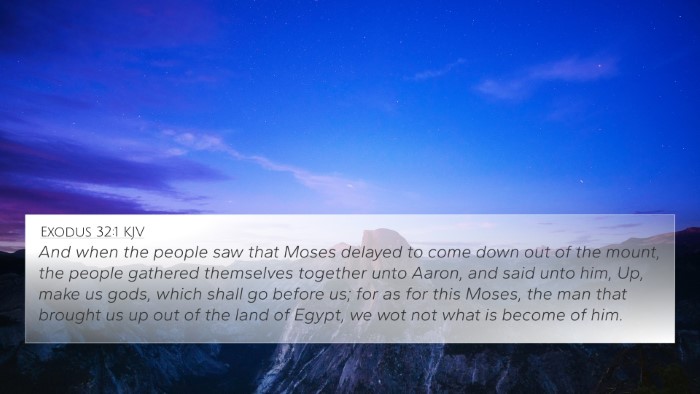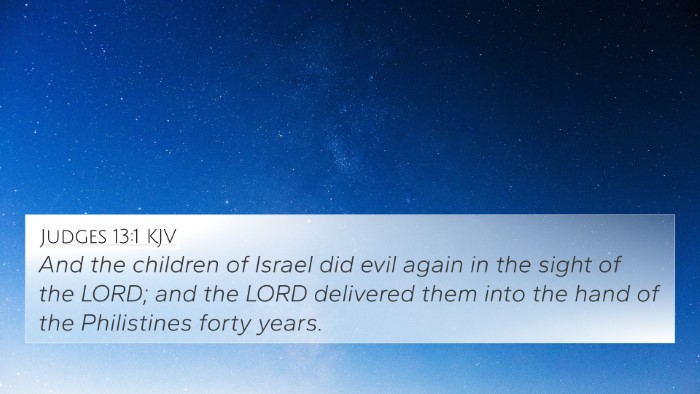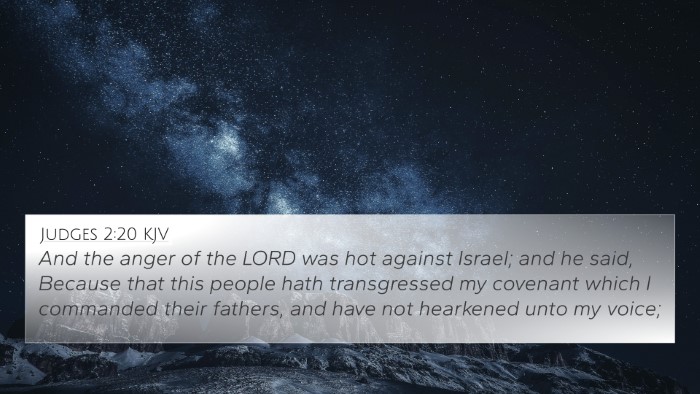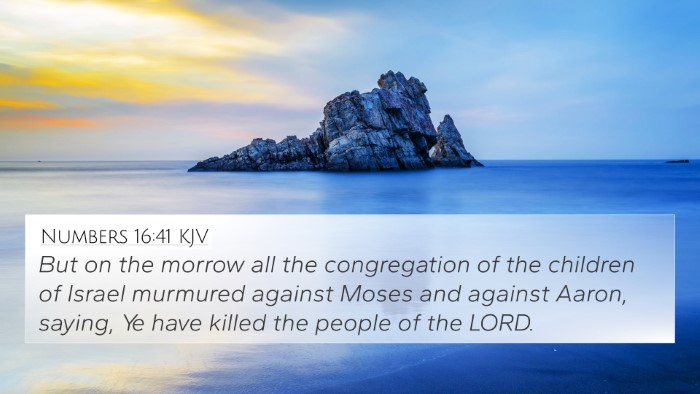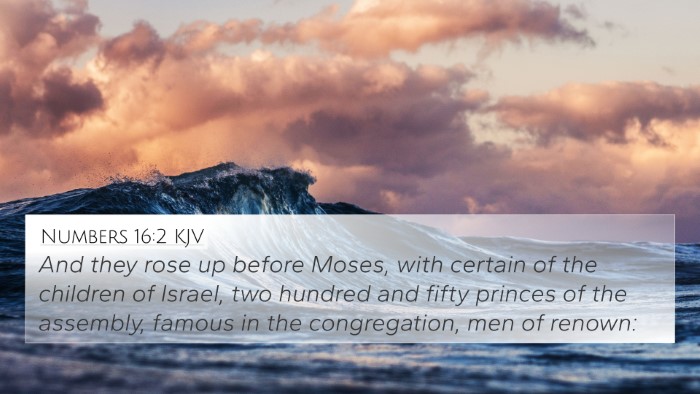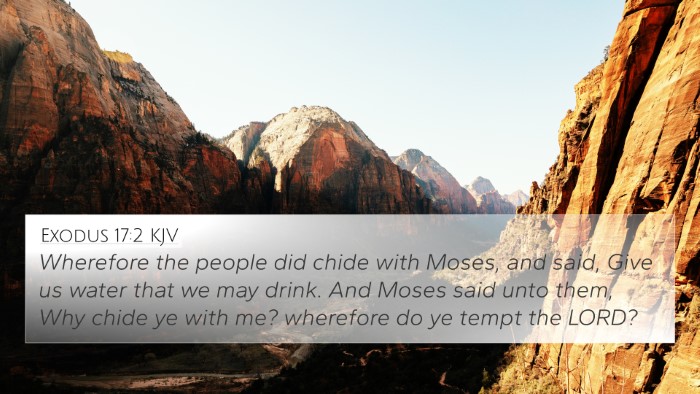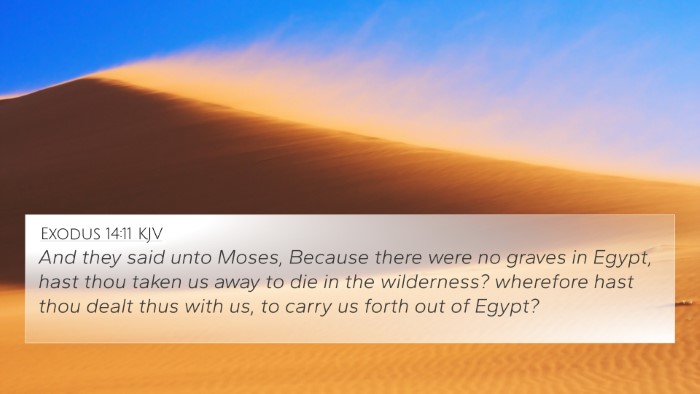Understanding 1 Samuel 8:8
Verse: "According to all the works which they have done since the day that I brought them up out of Egypt even unto this day, wherewith they have forsaken me, and served other gods, so do they also unto thee." (1 Samuel 8:8, KJV)
Summary of Meaning
This verse captures a pivotal moment in Israel's history as it transitions from a theocratic government led by judges to a monarchy. God, through the prophet Samuel, is addressing the people's demand for a king, highlighting their repetitive pattern of disobedience and idolatry.
Insights from Commentaries
- Matthew Henry: Henry emphasizes that this request for a king is a rejection of God's kingship, and that the people's historical pattern of rebellion is significant. He notes that the Israelites have continually turned away from God, opting to follow the norms of surrounding nations rather than remaining faithful to their covenantal relationship with God.
- Albert Barnes: Barnes interprets the repetition of the Israelites' disobedience as a somber reminder of human nature's inclination towards sin. He mentions how God’s acknowledgment of their history serves as both a warning and a reflection of His sovereignty, underlining that their desire for a king was influenced by their failures to remain faithful to God.
- Adam Clarke: Clarke focuses on the ramifications of Israel's choice reflected in this verse. He suggests that by asking for a king like their neighbors, they are not only denying God's direct rule but are also putting themselves on a path of suffering under a human ruler who may not prioritize their spiritual well-being.
Bible Cross References
Below are several Bible verses that relate thematically to 1 Samuel 8:8, highlighting connections and patterns of rebellion among God’s people:
- Judges 2:11-13: This passage mentions Israel's cycles of disobedience and divine judgment, paralleling their request for a king.
- 1 Samuel 10:19: The Israelites’ tendency to forsake God for foreign gods is echoed when Samuel confronts them about their desire for a king.
- Deuteronomy 17:14-15: God's instructions on appointing a king reveal the distinctions and expectations of human leadership versus divine kingship.
- Hosea 13:9-10: A reminder of the consequences of forsaking God and relying upon human strength and governance.
- Psalm 106:19-23: This psalm recounts Israel's history of rebellion, which ties back to the themes present in 1 Samuel 8.
- Isaiah 1:4: Discusses the rebellion of Israel against God, emphasizing the ongoing struggle between divine authority and human preference.
- 1 Chronicles 10:13-14: Refers to the consequences that arose from Saul's reign, illustrating the outcomes of Israel's desire for a king.
- Romans 1:21-23: A New Testament reflection on the human tendency to worship created things over the Creator, akin to Israel’s idolatry.
- Matthew 6:24: Jesus’ teaching on serving two masters resonates with Israel’s choice to place their loyalty in a king rather than God.
Thematic Connections
This verse serves as a springboard for exploring various biblical themes. Some important connections include:
- Rebellion and Idolatry: The cyclic nature of sin and rebellion is a consistent theme throughout scripture, echoed in the Israelites’ history.
- Divine Sovereignty: The tension between human government and divine rule reveals deep theological implications about God's ultimate authority.
- Consequences of Choices: The narrative signifies the inevitable consequences that ensue when God's people choose a path contrary to His will.
Using Cross-Referencing Tools
For those studying the Bible more deeply, various tools exist to enhance understanding, such as a bible concordance or a bible cross-reference guide. These tools allow for:
- Identifying connections between Old and New Testament themes.
- Comparative studies of key scriptural events.
- Cross-referencing Bible studies to draw parallels between various scripture references.
Conclusion
1 Samuel 8:8 serves as a significant reflection on the nature of faith, governance, and the tendency of God's people to stray from divine paths. By utilizing comprehensive bible cross-reference materials, believers can deepen their understanding of this verse and its implications, connecting it with the broader narrative of scripture.
